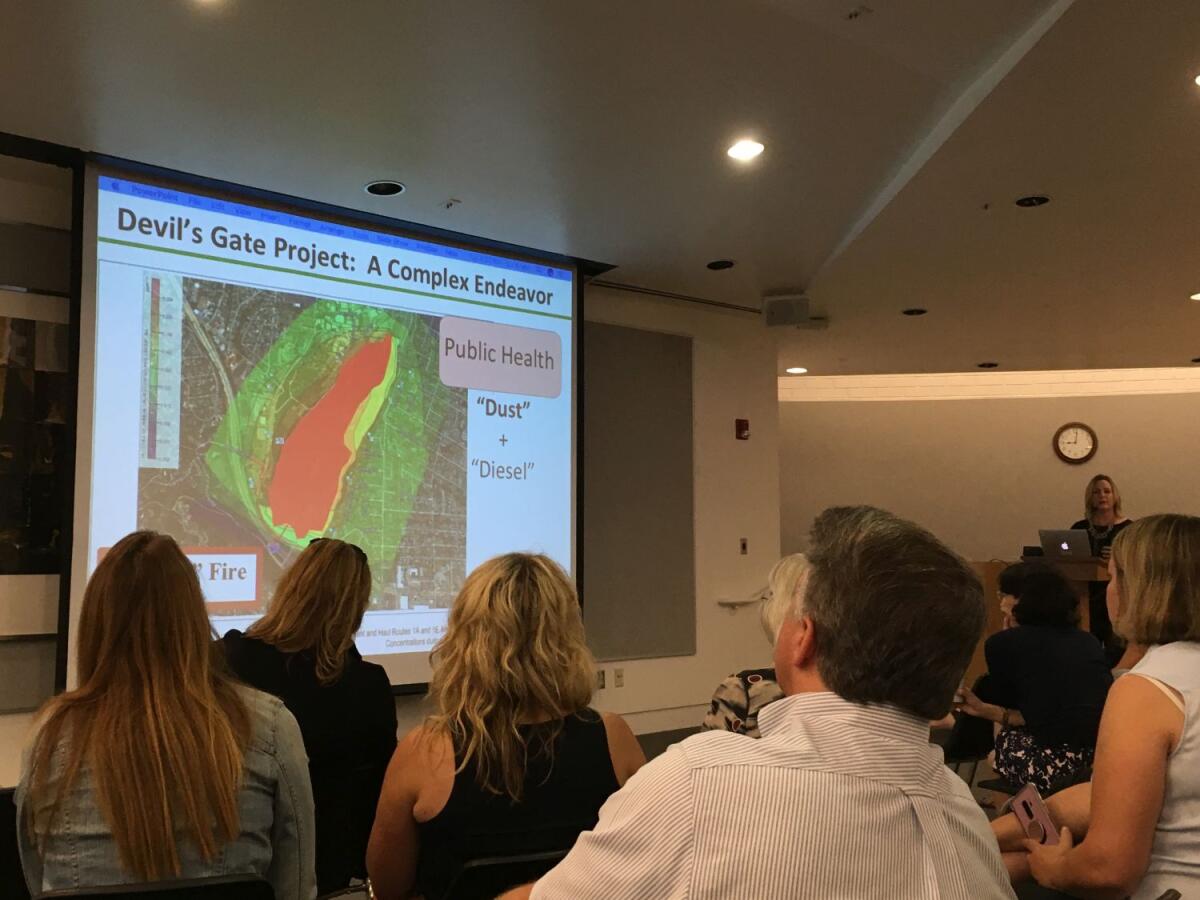With Devil’s Gate hauling set to resume, plans to test tailpipes progress

Measuring particulate matter and nitrous oxide coming from the tailpipes of trucks hauling sediment from Devil’s Gate Dam — the surest way to know whether the contracted fleet lives up to emissions standards promised by the county — could begin next spring.
In one of two community forums held Tuesday by the parent-led community group LCF 4 Healthy Air, residents heard an update on the sediment removal project, temporarily halted Sept. 5 for issues related to fugitive dust outside the work site.
Steve Burger, a county deputy director in attendance Tuesday, said a second tire-washing station was successfully installed near the project’s exit, and officials are hopeful work will resume Monday.
He said the fact that the project has received three notices of violation from the South Coast Air Quality Municipal District related to dust tracking, resulting in four citations to the project contractor and one subcontractor, had nothing to do with the shutdown.
“The shutdown was directed by us, because we saw the dust problem,” Burger said after Tuesday’s morning meeting.
Placing devices directly inside the exhaust pipes of certain diesel haulers so their data points can be recorded as part of a UC Riverside study will not likely be completed this hauling season, which ends in November. Acquiring the devices has been difficult, officials said Tuesday.
Additional measures have been taken by La Cañada Unified School District, which recently approved real-time monitoring at five sites on the La Cañada High School campus.
Supt. Wendy Sinnette said readings on even ultrafine particulate matter (having a diameter of less than .1 microns) are being delivered in 10-minute, 1-hour and 24-hour intervals. Officials get regular input on whether and how much those levels exceed prescribed thresholds and have a plan in place to relocate physical education classes and outdoor sports and notify families if needed.
“It’s taken a lot of resources, but we will continue to monitor the air quality to make sure we are protecting the health of our staff and students,” Sinnette said.
Elizabeth Krider, an LCHS parent who helped form LCF 4 Healthy Air, highlighted precautions taken so far to monitor air quality in and around Hahamongna Watershed Park and nearby schools and ensure trucks are compliant with clean-air regulations.
Although county officials have said all diesel trucks used at Devil’s Gate Dam must adhere to 2010 emissions level standards, Krider said ensuring adherence is more difficult. Tailpipe testing will show whether trucks operating under real-world conditions are meeting expectations.
“The tailpipe inspections protect those who are closest [to the dig site],” Krider said. “The objectives for that are to screen dirty trucks that these other measures don’t do.”
Support our coverage by becoming a digital subscriber.
